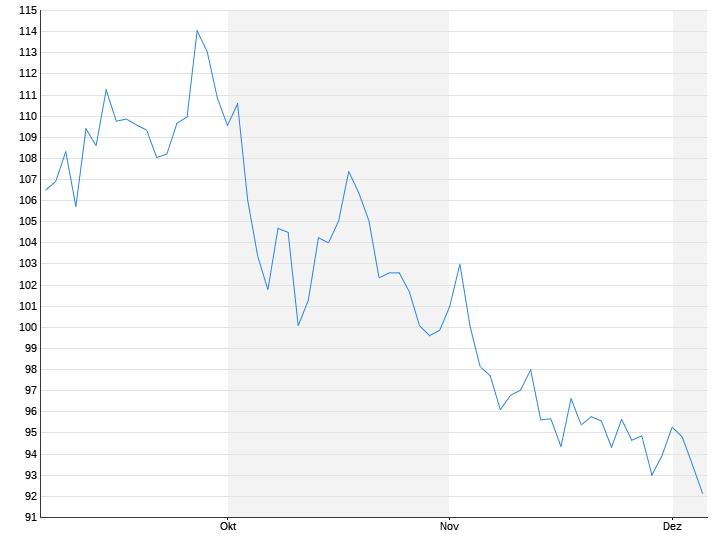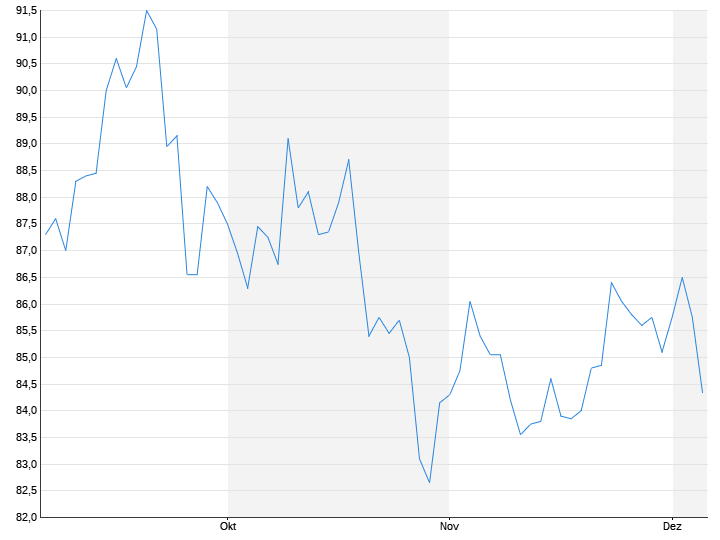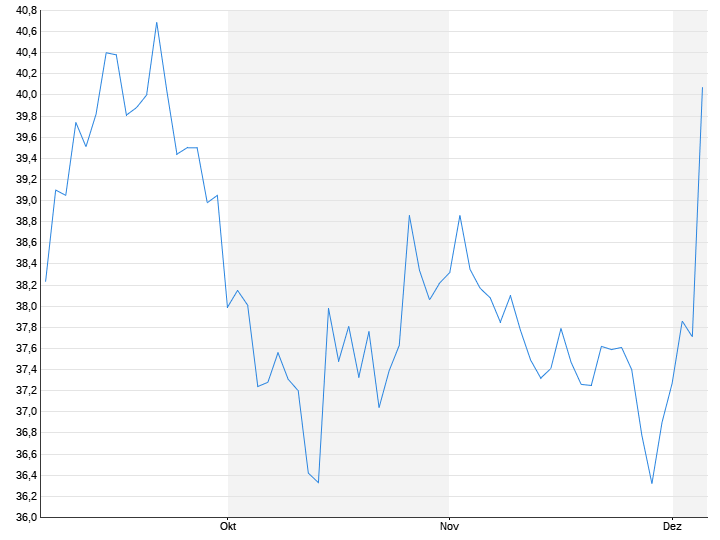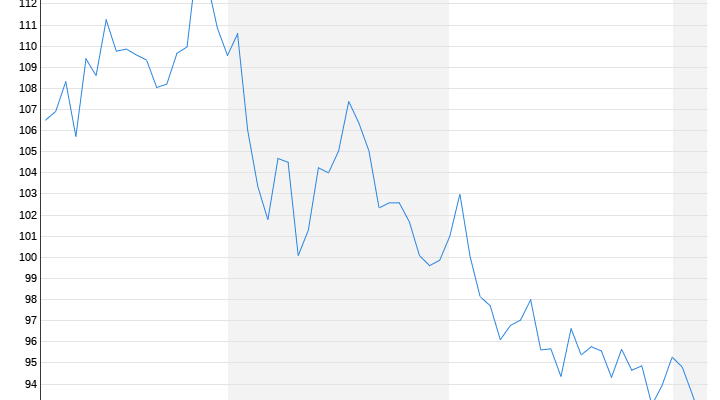Dow Jones closes in the red
Losses in energy stocks are causing interest rate euphoria to evaporate
December 6th, 2023, 10:13 p.m
Listen to article
This audio version was artificially generated. More info | Send feedback
Investors are hoping that the US Federal Reserve will soon ease monetary policy. There may even be a prospect of an interest rate cut. But the interest rate euphoria following the latest economic data is fading into the background. The collapse in oil prices is depressing the prices of energy companies.
Strong price losses among energy companies due to falling oil prices are slowing down Wall Street. The Dow Jones Index The standard values were hardly changed at 36,054.43 points. Also the broader one S&P 500 and the technology stock market index Nasdaq more or less stood still with 4549.34 and 14,146.71 points respectively.

The stock markets pulled down the shares of large energy companies such as Exxon Mobil and Marathon Oil, which lost up to around three percent. An unexpectedly large increase in US inventories had put additional pressure on already weak oil prices. Rising U.S. inventories underpinned oil investors’ recent supply-demand concerns, said Dennis Kissler, senior vice president of trading at BOK Financial. “At the moment they are focusing more on the risk of too weak demand than of too tight supply.”
This means that the recent announcements by Saudi Arabia and Russia that they would extend production cuts beyond the first quarter of 2024 “fell on deaf ears,” commented Tamas Varga, analyst at oil broker PVM. Investors’ euphoria about interest rates after the latest economic data, which pushed Wall Street into positive territory after the opening, took a little back seat.


According to a survey by the personnel service provider ADP, US companies created fewer jobs in November than experts expected. This fueled hopes that the US Federal Reserve would soon ease monetary policy. The monetary authorities are trying to cool down the hot labor market by raising interest rates. “It is undoubtedly the US government’s official labor market report on Friday that is the real highlight of the week,” said Craig Erlam, analyst at trading house Oanda. However, the publications in the meantime filled a gap and supported the thesis that the economic data overall was pointing in the direction desired by the Fed.
There is currently a probability of around 60 percent on the futures markets that the Fed will cut interest rates for the first time in March. The expectations helped government bond prices rise. The ten-year yield US bonds In turn, slipped to 4.123 percent from 4.171 percent on Tuesday.
Campbell Soup is a big winner


The stocks of tobacco producers came under pressure among individual stocks outside the energy sector Altria and Philip Morris, which lost 2.64 and 1.55 percent respectively. British rival British American Tobacco said it would suffer a $31.5 billion loss from writing down the value of some U.S. cigarette brands.
They also flew out of the depots Power plug with a loss of 5.9 percent to $3.99. The experts at the major US bank Morgan Stanley have set it to “Underweight” after previously “Equal Weight”. The price target was also lowered to $3.00 from $3.50. The rising prices for electricity from renewable energies made the production of green hydrogen increasingly dependent on subsidies. This makes the prospects for suppliers difficult to assess. On the other hand, the food company’s shares were in demand Campbell Soup with an increase of 7.18 percent according to strong figures. The company posted a profit of 91 cents per share last quarter thanks to price increases. Analysts had expected an average of 88 cents.
